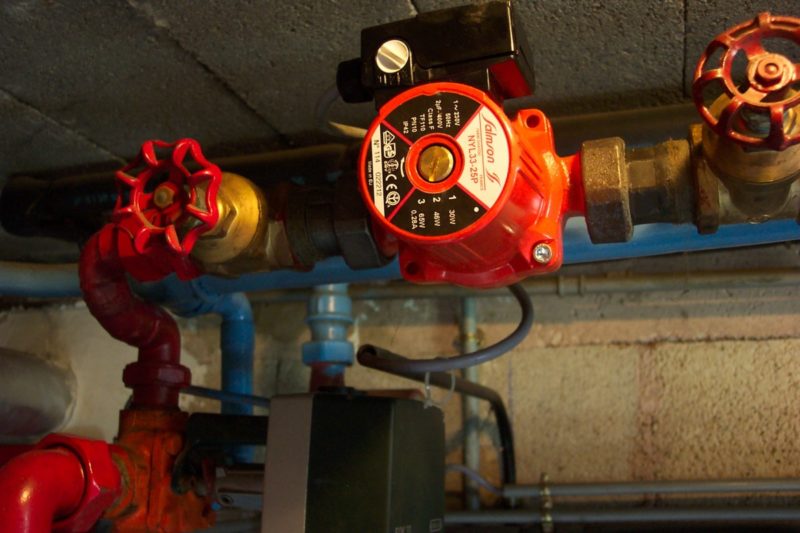Are you curious to know why is my heater whistling? Dirty filters, defective gas valves, leaking ducts, tiny ducts are the common causes. Your HVAC system comes with various heating choices, and the best option is the heater.
It’s because it can operate on multiple fuels and that numerous techniques have now been developed to increase the power performance. The heater has become one of the best energy-efficient heating alternatives available.
Despite being meant to improve your convenience, there’ll be occasions whenever the heater is the primary source of your displeasure. The most prevalent indoor discomfort caused by an HVAC system is a harsh heater, mainly whenever it makes a whisper. In this article, we’ll discuss in detail why your heater is whistling. So, without further ado, let’s get started!
Why Is My Water Heater Whistling?
The whistling of the water heater is very dangerous, to fix this problem you must first understand why is my heater whistling. Here are some reasons for this.
#1. Faulty gas supply valve
Gas-powered heater technologies are affected by this problem. When a gas valve malfunctions, the gas traveling over your system is frequently released at increased pressure. A build-up of gas pressure causes the whistling sound. If anyone detects gas in the home, turn the heat down until a service specialist arrives to replace the valve. It reduces gas waste and shields your building from flames and the harmful effects of breathing the gases.
#2. Blocked air filters
A filthy air filter may well cause a whistling sound again to deliver hot air to your home. In this instance, the warm air will attempt to flow through the gap created by the dirt and dust in your filtration systems. Furthermore, the noise is caused by air being drawn from the inside through mainly obstructed filtration systems. Aside from the noise that filthy filters make, they also cause damage to the motor of fans, which has to perform more hours to force air through the tiny gaps that remain on your filtration systems.
#3. Inadequately sized ducts
In systems that aren’t properly built, incorrectly designed HVAC ducts are a regular problem. If the heater ducts are tiny, suction will form when air passes through the heater. Once you disconnect the furnace’s doors, the suction ceases whistling. If that’s the source of your furnace’s noise, you’ll need to replace the ducts with new ones which are the appropriate fit.
#4. Air ducts that leak
Leaks in HVAC equipment are frequently caused by a loose connection to the central ducting system or decaying ductwork. Leakage consumes your drive and energy up your energy expenditures significantly. A duct replacement may be the best option for your house, based on the quantity of the damage and the condition of your systems. The preceding problems can be detected by regularly having an expert tune-up on your heater. When found throughout a tune-up, they may be fixed quickly, saving you money over waiting till a whistling sound occurs. A regular tune-up is an important part of keeping your heater in good working order and avoiding expensive repairs.
#5. Defective damper lever
A whistling noise may be produced whenever the shock absorbers valves are locked to block air supply to portions of the houses entirely or half shut. You’ll need to find the damper levers and check certain they’re in the right place.
#6. Closed doors
However, having a door locked can appear to be an excellent way to maintain rooms personally; quite so many locked doors might deplete your Ventilation system. Because there are so many return grilles within central areas and supply outlets are hidden by locked doors, the system becomes starved. To just get down to the return grille, closed doors need air to creep via the microscopic crevices surrounding the doors. As a result, the blower turns on, and a whistling sound starts.
Is It Dangerous To Have A Whistling Water Heater?
The whistling of the water heater is dangerous? Yes, of course! Whistling sounds coming from the hot water system indicate that it will malfunction. It’s an alert that necessitates quick assistance from a plumbing technician. All these causes have the potential to explode. When an explosion happens, there is a chance that most pressure will accumulate to propel the hot water system through the ceiling. As a result, all whistling from the hot water system must be addressed as an alarm.
If the water heater starts whistling, switch it off straight immediately. If the whistling is produced by too much pressure inside the unit, it will lessen the likelihood of a blast. It might allow the device to lose heat well before the repair professional arrives. You must not adjust modifications, test links, clean drains, or take any other operation for your security. While you wait for the water heater repair professional, it is better if you and your family exit your house. You may also want to read about solar pool heater.
It’s A Wrap!
After reading this article, we hope you will better understand why is my heater whistling. Above, we have discussed six causes that lead your water heater to produce whistling sounds. If you want to get rid of this problem, read them carefully. Don’t hesitate to know these things too; read about how does a pool heater works and how long does a pool heater last. Thank you, friends, for being with us at the end!

